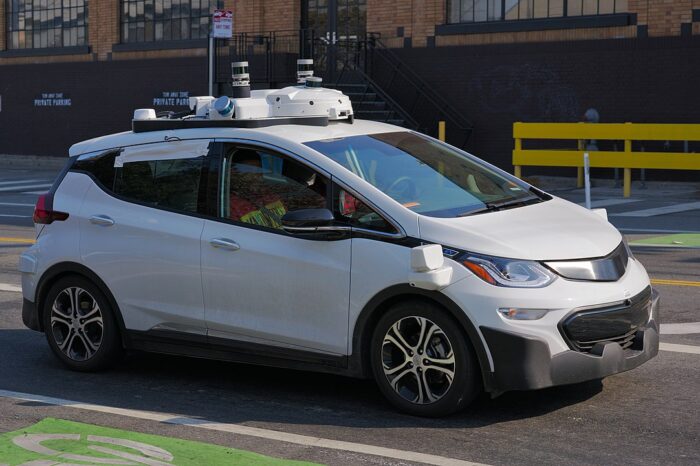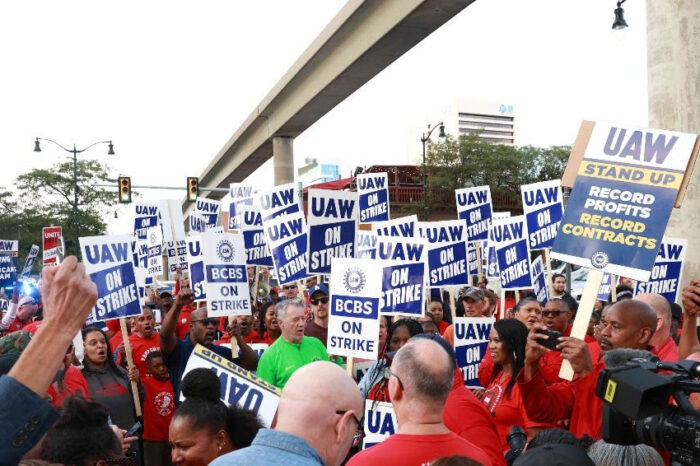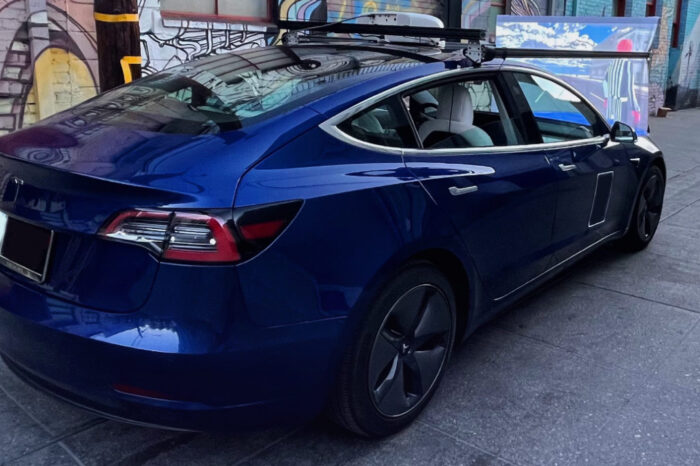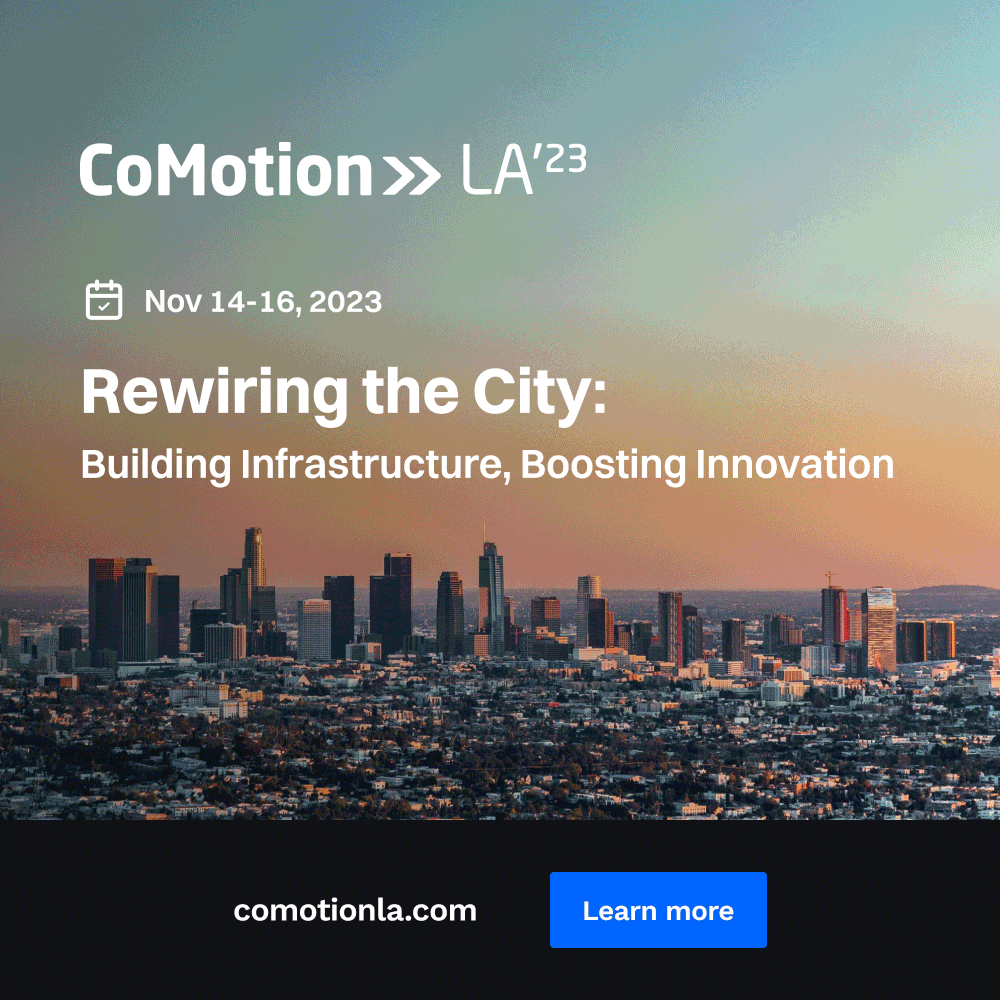Another big week for electric pledges. VW’s stock skyrockets after it unveils ambitious EV battery plans, while BMW now says half of its sales will be EVs by 2030. That’s child’s play, though, compared to goals set by Senate Majority Leader Chuck Schumer: the U.S., he says, should aim for 100% EVs by the start of the next decade, thanks to hundreds of billions in federal support. Meanwhile, Boris Johnson’s government says it also wants only EVs in the market by 2030 — but it is nevertheless dialing back on EV subsidies and cutting them entirely for luxury vehicles, a major blow to Tesla’s UK ambitions. It’s also another encouraging week for American public transit: agencies such as Washington D.C.’s WMATA plan to leverage the funds they receive from the American Rescue Act to invest in new train cars, while the CTA in Chicago is partnering with tech firms to figure out how to more efficiently serve riders. While Tesla’s autonomous capabilities are once again drawing skepticism and pleas for more regulatory scrutiny, Moscow-based Yandex boasts that its AVs have conquered an enemy that has doomed empires: the Russian winter. Finally, in what could be a glimpse of a burgeoning business model, Oakland-based Unagi says it’s expanding its scooter subscription service to six more cities after considerable success in LA and NYC.
![]()
Schumer pushes all-EV plan: As Democrats in Congress and President Biden begin the push for a major infrastructure bill, Senate Majority Leader Chuck Schumer is eyeing federal assistance to hasten the adoption of EVs. He has proposed $454 billion over 10 years to boost the nascent industry, including $45 billion for EV infrastructure and $17 billion for manufacturers to retrofit their facilities for EVs. Finally, Schumer wants big subsidies to help people buy EVs – he has not offered a specific figure but says it would be even greater than the existing $7,500 tax credit. The plan, he says, is for every new vehicle in the U.S. to be electric by 2030. Wow.
The second life of an EV battery: Its first car still hasn’t quite hit the market, but luxury EV-maker Lucid is already thinking about what to do with retired car batteries. The Newark, Calif-based company is considering using old batteries, which typically retain about 70% of their charging capacity, for industrial energy storage.
The ultimate electric driving machine: After unveiling the 2022 i4, a sleek sedan with a 300-mile range, BMW becomes the latest car-marker to make an EV pledge. It projects that 50% of its car sales will be EVs by 2030. That sounds pretty modest compared to some other automakers’ promises –– Volvo says 100% EV by 2030, GM says 100% by 2035…but maybe it’s just a little more realistic.
Amazon expands EV delivery: A month after the online retail giant began testing the use of electric delivery vans in Los Angeles, it expands to San Francisco and says it plans to expand to 14 more cities this year. Amazon has already committed to buying 100,000 of the vehicles, made by startup Rivian. Of the $8 billion Rivian has raised, $2 billion comes from Amazon.
New trains for D.C.: Metro, the transit agency for the nation’s capital, inks a $2.2 billion deal with Hitachi Rail for 256 new train cars. The contract calls on Hitachi Rail to build the cars in the D.C. area. The company is already scoping out potential sites for an assembly plant. The ambitious plan underscores the rising confidence of Metro and other metropolitan transit agencies in the U.S., in a post-pandemic transit comeback.
Arrival of riches: Arrival, the U.K.-based EV company, has seen its value soar since going public via SPAC in November. It is now worth $15.3 billion, more than twice its value at the beginning of 2020. That pegs the personal fortune of founder Denis Sverdlov, a former Russian deputy minister, at a cool $11.7 billion.
…meanwhile, Arrival plans a new microfactory: The company eyes a second plant near its existing facility in South Carolina to manufacture delivery vehicles for UPS, which in January signed a contract for 10,000 small vans.
Taiwanese mock Chinese transportation plans: A recent transportation plan unveiled by Chinese officials draws derision from leaders in Taiwan, who accuse the PRC of trying to build rail and road links to the island as a means of subjugating it politically. A leading member of parliament advised the public to regard the plan, which envisions an 81-mile/130 km rail and road connection between Taiwan and the mainland by 2035, as “science fiction.” We tend to agree…
Uber-upset: Hundreds of taxi drivers in Barcelona block traffic in protest at Uber’s return to the Catalan capital. The ride-hailing giant was forced to leave two years ago due to a city regulation that required rides to be hired at least 15 minutes before the customer is picked up. Uber has decided to work within the regulation for the time being, connecting users to a pool of 350 traditional cabs that charge with meters. Leaders of one left-wing taxi union called participating drivers “traitors,” undercutting their other cabbie brethren…
Chicago looks to tech to predict ridership: Chicago’s transit agency partners with several major tech companies to try to track bus ridership in real-time, hopefully enabling the agency to be more nimble and flexible in its deployment of buses. The tools developed by City Tech Collaborative, Microsoft, Intel and Gentech aim to use predictive analytics to project ridership, allowing CTA to send out more vehicles to meet demand and prevent crowding or, conversely, to hold back or divert unneeded buses. For now it’s just a pilot on one bus line, but it could expand if it’s successful. Other cities take note…
EVs drive VW stock through the roof: Excitement over the German auto giant’s ambitious EV goals, most recently its announcement to build 12 new battery plants by 2030, create a frenzy among investors that drove the company’s stock up as much as 32% last week. Even after cooling down, shares still ended the week up 19%.
No more subsidies for Model 3: The UK government reworks its EV subsidy program, reducing the total subsidy available to consumers from £3,000 to £2,500 and excluding any cars over £35,000. That’s bad news for Tesla, whose £40,500 Model 3 was the top beneficiary of the program last year. The soon-to-be-released Ford Mach-E won’t qualify either. The move draws criticism from many segments of the auto industry as well as from environmental groups: they argue that slashing the subsidy works against HM Government’s own goal of eliminating ICE vehicles sales by 2030.
![]()
Agencies tussle over AVs: The National Transportation Safety Board, an independent U.S. government agency responsible for investigating major transportation-related accidents, tells the National Highway Traffic Safety Administration to get serious about regulating AV safety. In a letter, NTSB Chairman Robert Sumwalt says the NHTSA is largely allowing manufacturers to “define safety.” He lays out a number of recommended requirements, including in-car monitoring systems and collision avoidance systems. The letter, obtained last week by CNBC, was penned on Feb. 1, more than one month before a Tesla on autopilot drove underneath the trailer of a semi-truck, causing two critical injuries. The NHTSA is sending a team to investigate the crash, strikingly similar to two other Tesla autopilot crashes in recent years.
SAIC says AVs by 2022: The Chinese auto giant says that a new partnership with lidar maker Luminar Technologies will yield partially autonomous vehicles that will be available to Chinese consumers as early as next year. At the start, the cars will be driverless on highways and include a number of driver assistance features for urban driving.
Yandex beats the Russian Winter: The freezing temperatures and snow that brought down Napoleon have been conquered by Yandex, Russia’s largest tech firm. Yandex vehicles (Toyotas or Hyundais with Yandex software) have now driven 6 million miles on Moscow streets over three years of testing, but the company is particularly proud of how they fare in the face of challenging winter conditions. By designing neural networks to filter snow out of the lidar point cloud, its cars continued to see and focus on all of the things that matter: notably pedestrians and other vehicles.
 Big appetite for Unagi: Unagi, the Oakland-based subscription scooter service that shares the name of a delicious type of sushi, is expanding to six new cities: San Francisco, Austin, Seattle, Phoenix, Nashville and Miami. And it’s expanding its service in New York City and Los Angeles, where it has been operating a $40-a-month subscription service since last summer. The company just received $10.5 million from a Series A funding round led by Ecosystem Integrity Fund. The subscription model is an interesting compromise between buying a scooter and relying on dockless street rentals and may prove attractive in lower-density parts of cities where it’s often hard to find a shared e-scooter.
Big appetite for Unagi: Unagi, the Oakland-based subscription scooter service that shares the name of a delicious type of sushi, is expanding to six new cities: San Francisco, Austin, Seattle, Phoenix, Nashville and Miami. And it’s expanding its service in New York City and Los Angeles, where it has been operating a $40-a-month subscription service since last summer. The company just received $10.5 million from a Series A funding round led by Ecosystem Integrity Fund. The subscription model is an interesting compromise between buying a scooter and relying on dockless street rentals and may prove attractive in lower-density parts of cities where it’s often hard to find a shared e-scooter.
A climate-friendly superhighway: The transit agency serving San Jose and Santa Clara is eyeing a 10-mile continuous “bike superhighway” running through the two cities. A committee is reviewing three alternatives, each of which offers pros and cons in terms of scenic beauty, access to jobs and retail and safety. Finally, a highway project we can be excited about!
A bike fit for a spaceman: A startup is using a technology NASA developed for planetary rovers to make airless alloy bike tires. Los Angeles-based SMART Tire Company worked with the space agency to develop the tires, the first consumer product that makes use of “airless shape memory alloy” technology. This is designed to not only protect wheels against punctures, hopefully also reducing the amount of rubber heading to landfills.
![]() Mass Transit Magazine takes a look at how Metrolinx, the transit agency in Ontario, is implementing an ancient Japanese practice, Shisa Kanko, to improve door operations.
Mass Transit Magazine takes a look at how Metrolinx, the transit agency in Ontario, is implementing an ancient Japanese practice, Shisa Kanko, to improve door operations.
Writing in Slate, Henry Grabar implores us to stop describing the thousands of American cyclists who are killed or critically injured each year as the victims of “bike accidents,” since they’re almost always hit by cars.
Bloomberg CityLab asks if shared mobility will survive the pandemic.

Cruise into public affairs: GM’s AV subsidiary has been growing in a lot of ways recently. In December it began testing vehicles in San Francisco without any human operator. Last week it acquired fellow AV startup Voyage. The company is looking for a public affairs manager to navigate the thorny public policy debates that will accompany this era of rapid change.
A Swede opportunity: Amidst a flurry of EV commitments from automakers, Volvo’s sticks out at the most ambitious. The Swedish brand says it will be all-EV by 2030, five years ahead of GM. The company has roughly 600 positions open around the world –– India, Sweden, Belgium, U.S., U.K., among other locations –– that will aid in that pursuit.
Have a job listing that’s perfect for the CoMotion community? Please send it to jbliss@comotionglobal.com.
Enjoy the Week in Review? Get it delivered directly to your inbox by signing up for the CoMotion>>NEWS newsletter.






